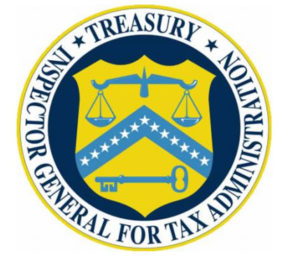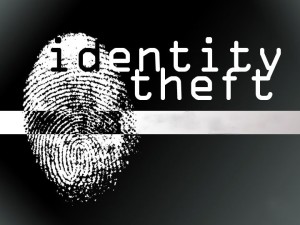Stopping Senior Scams: Developments in Financial Fraud Affecting Seniors
Thursday, March 23rd, 2017 @ 3:20PM
TESTIMONY OF Timothy P. Camus Deputy Inspector General for Investigations TREASURY INSPECTOR GENERAL FOR TAX ADMINISTRATION before the SPECIAL COMMITTEE ON AGING UNITED STATES SENATE – February 15, 2017
Stopping Senior Scams: Developments in Financial Fraud Affecting Seniors
CFEG reports that on February 15, 2017 Timothy P. Camus, Deputy Inspector General for Investigations Treasury Inspector General For Tax Administration, testified before the Special Committee On Aging in the United States Senate, concerning tax-related fraud, including schemes employed by criminals who impersonate IRS employees and those who use lottery scams to steal money from taxpayers. CFEG will highlight Mr. Camus’ testimony below. A copy of the full text of Mr. Camus’ testimony may be reviewed by clicking the link below. CFEG recommends that taxpayers read Mr. Camus’ testimony and learn about these scams as a way to avoid becoming a victim.
Mr. Camus testified that the Treasury Inspector General for Tax Administration (TIGTA) was created by Congress in 1998 and is mandated to promote integrity in America’s tax system. It provides independent audit and investigative services to improve the economy, efficiency, and effectiveness of IRS operations. TIGTA’s oversight activities are designed to identify high-risk systemic inefficiencies in IRS operations and to investigate individuals and groups whose criminal activities assail the reputation and integrity of the IRS. TIGTA plays the key role of ensuring that the approximately 83,000 IRS employees who collected more than $3.3 trillion in tax revenue, processed more than 244 million tax returns, and issued more than $400 billion in tax refunds during Fiscal Year (FY) 2016, have done so in an effective and efficient manner while minimizing the risks of waste, fraud, and abuse.
Mr. Camus testified that TIGTA’s Office of Investigations (OI) protects the integrity of the IRS by investigating allegations of IRS employee misconduct, external threats to IRS employees and IRS data, and other attempts to impede or otherwise interfere with the IRS’s ability to collect taxes, which includes the impersonation of IRS employees. Specifically, OI investigates individuals who impersonate the IRS or its employees in order to extort money from innocent taxpayers under the guise of a non-existent IRS tax liability of some kind.
In his testimony Mr. Camus highlighted the two major IRS-related scams that have affected taxpayers over the past several years. He testified that since the fall of 2013, much of OI’s investigative efforts and resources have been focused on the investigation of a telephone impersonation scam in which more than 1.8 million Americans reported to us that they received unsolicited telephone calls from individuals falsely claiming to be IRS or Department of the Treasury employees. In addition, the so-called “lottery scam” has reemerged as a significant threat to tax administration.
IMPERSONATION SCAM
Mr. Camus stated that since October 1, 2013, more than 10,000 individuals in the United States have reported to TIGTA that they fell victim to this scam, and more than 1.8 million people reported to us that they had received a call from individuals impersonating IRS or Department of Treasury employees. The victims are of all ages, gender, economic status, and race. No one is immune from receiving the calls.
Here is how the scam works: The intended victim receives an unsolicited telephone call from a live person or from an automated call dialer. The caller, using a fake name and sometimes a fictitious IRS employee badge number, claims to be an IRS or Department of the Treasury employee. The scammers use Voice over Internet Protocol technology to hide their tracks and create false telephone numbers that show up on the victim’s caller ID system; this technique is known as spoofing. For example, the scammers may make it appear as though the calls are originating from the IRS, in Washington, D.C., or elsewhere in the U.S. when, in fact, they may have originated from other locations around the globe, including India.
The callers may even know the last four digits of the victim’s Social Security Number or other personal information about the victim. The impersonator claims that the intended victim owes taxes to the IRS and that, if those taxes are not paid immediately, the victim will be arrested or sued. Other threats for non-payment include the loss of a driver’s or business license or deportation. The impersonators often leave “urgent” messages to return telephone calls and they often call the victim multiple times.
Mr. Camus testified that the victims who were interviewed say the scammers who made the threatening statements as described above demanded that the victims pay the money using prepaid debit cards, wire transfers, Western Union payments, or MoneyGram® payments.
Mr. Camus testified that the scam has continued to evolve over time. Beginning in April 2016, victims were being told to pay the impersonators using Apple iTunes® gift cards. Between April and October 2016, between 70 and 80 percent of all payments made to the scammers were made via Apple iTunes® gift cards. In all cases, by the time the victims realized that they have been scammed, the funds were long gone.
LOTTERY SCAMS
Mr. Camus testified that while the impersonation scam was growing at an unprecedented rate, another scam, the lottery scam, also continued to target and victimize senior citizens. Although the lottery scam was not nearly the size or scope of the impersonation scam, its results were equally devastating for its victims. Its premise is simple: the scammer contacts the victim to advise the victim that he or she has won a lottery or some other prize, but before the winnings can be released, the victim is instructed to pay a non-existent Federal tax in order to receive the prize. Both the IRS impersonation scam and the lottery scam are very simple, but very effective in their use of the IRS as a means to cause confusion with their intended victims.
Posted by cfegov
Categories: Fraud, Waste and Abuse












